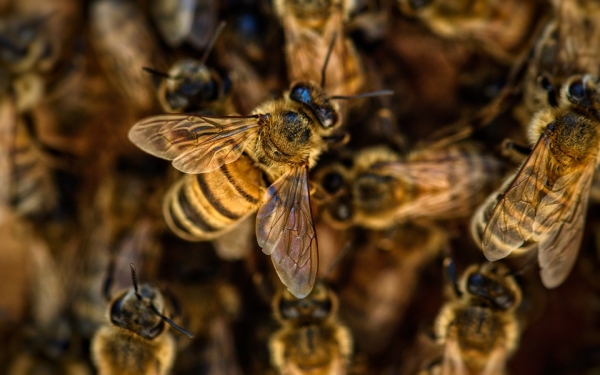A drop in longevity for lab-kept honey bees could help explain colony losses and lower honey production in recent decades.
A new study by University of Maryland entomologists shows that the lifespan for individual honey bees kept in a controlled, laboratory environment is 50% shorter than it was in the 1970s. When scientists modeled the effect of today’s shorter lifespans, the results corresponded with the increased colony loss and reduced honey production trends seen by U.S. beekeepers in recent decades.
Colony turnover is an accepted factor in the beekeeping business, as bee colonies naturally age and die off. But over the past decade, U.S. beekeepers have reported high loss rates, which has meant having to replace more colonies to keep operations viable. In an effort to understand why, researchers have focused on environmental stressors, diseases, parasites, pesticide exposure and nutrition.
This is the first study to show an overall decline in honey bee lifespan potentially independent of environmental stressors, hinting that genetics may be influencing the broader trends seen in the beekeeping industry. The study was published November 14, 2022, in the journal Scientific Reports.
Read more at University of Maryland
Photo Credit: TerriAnneAllen via Pixabay


